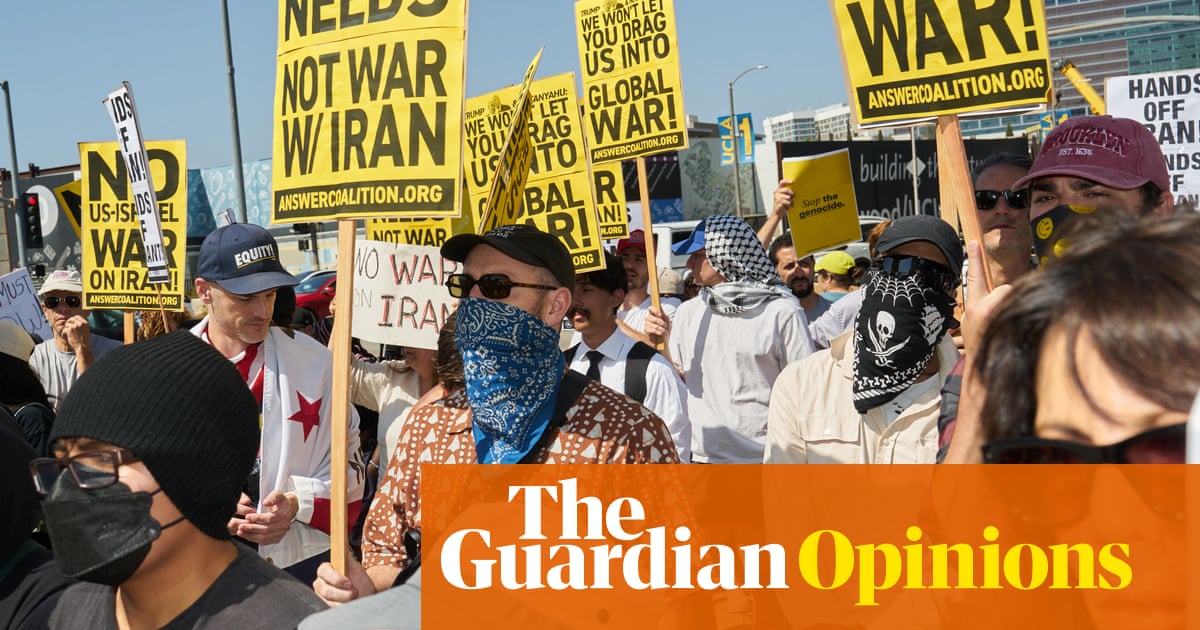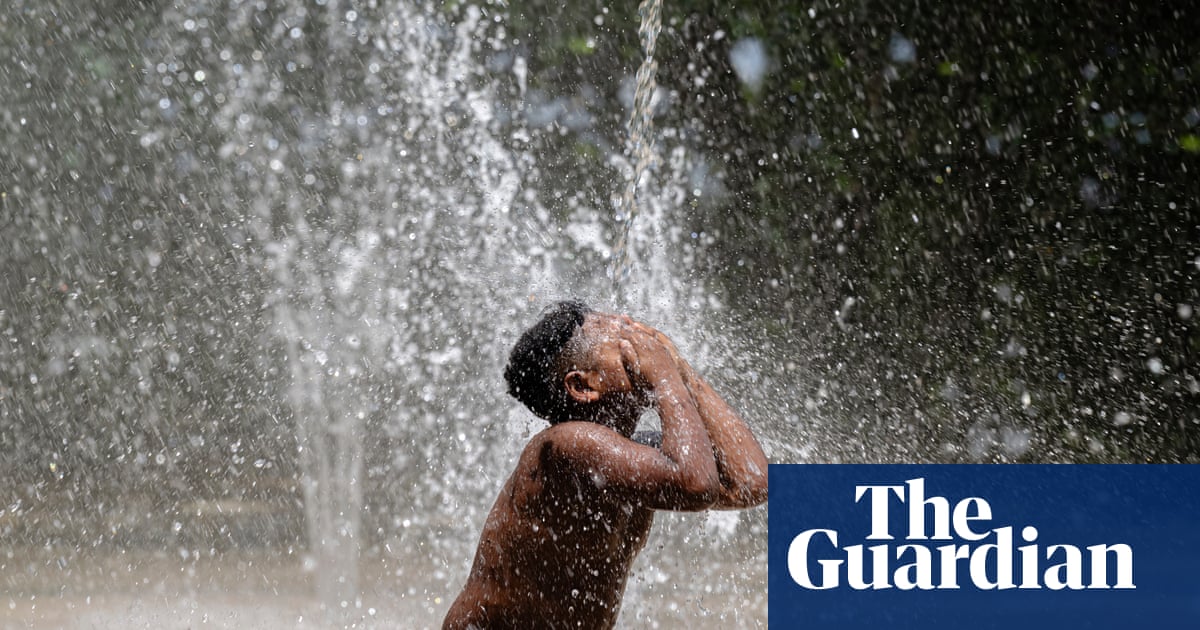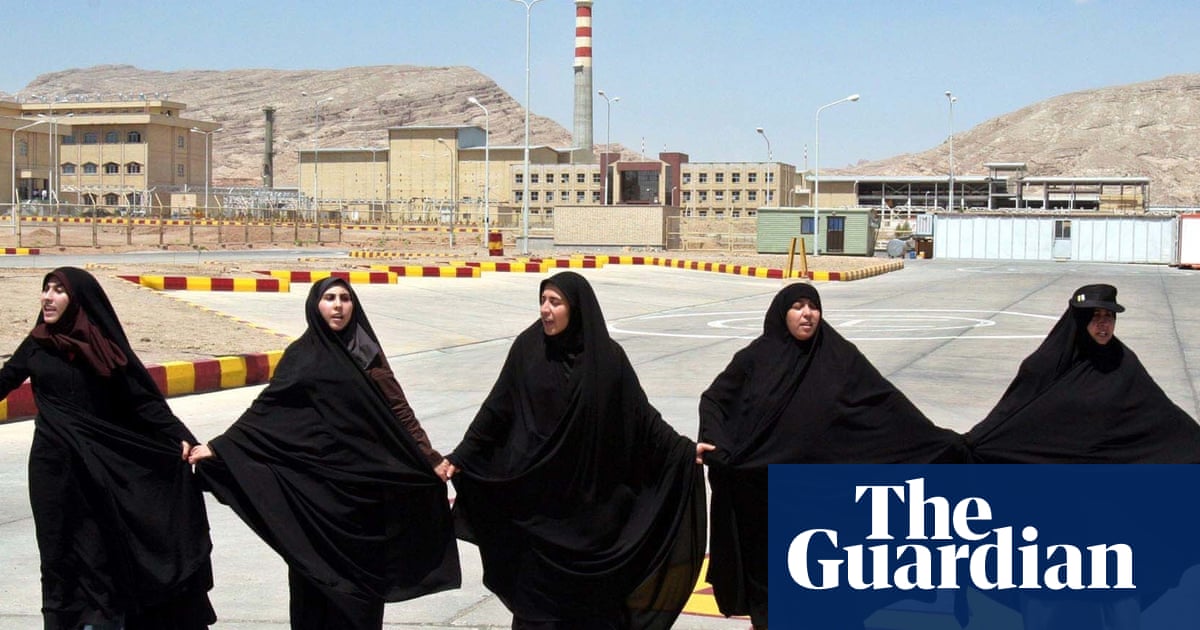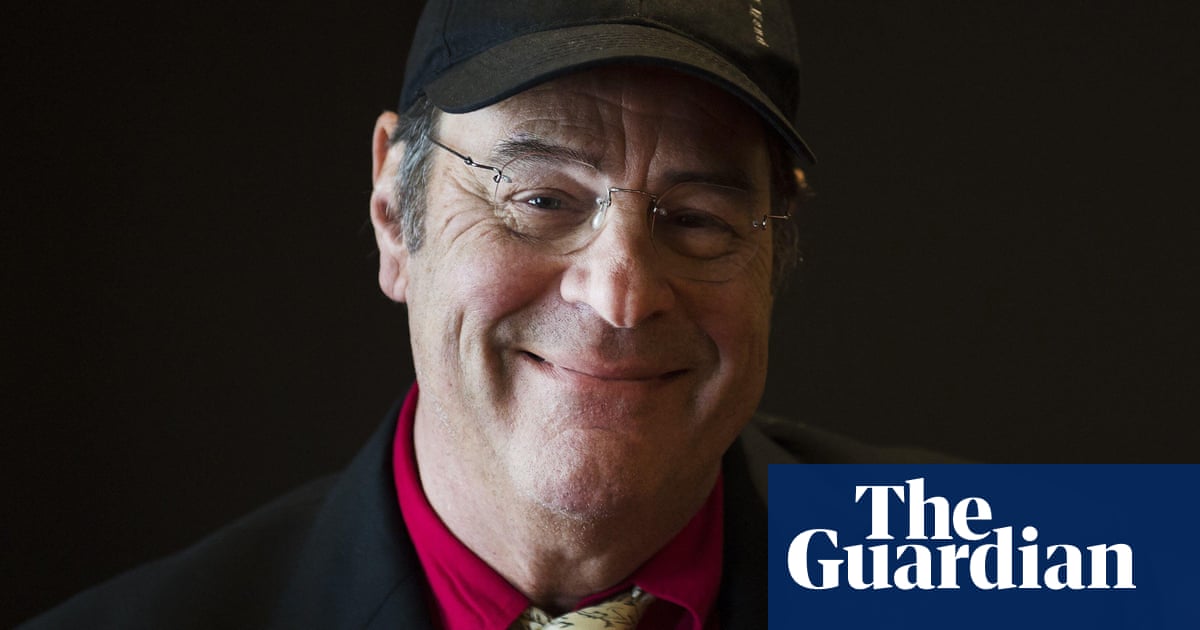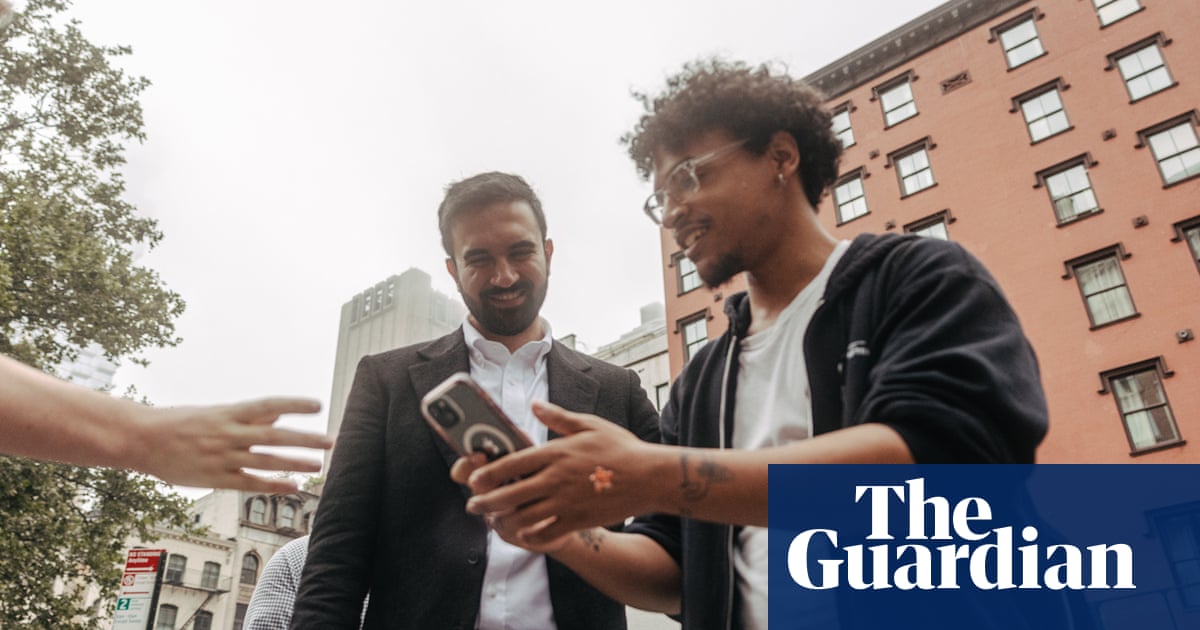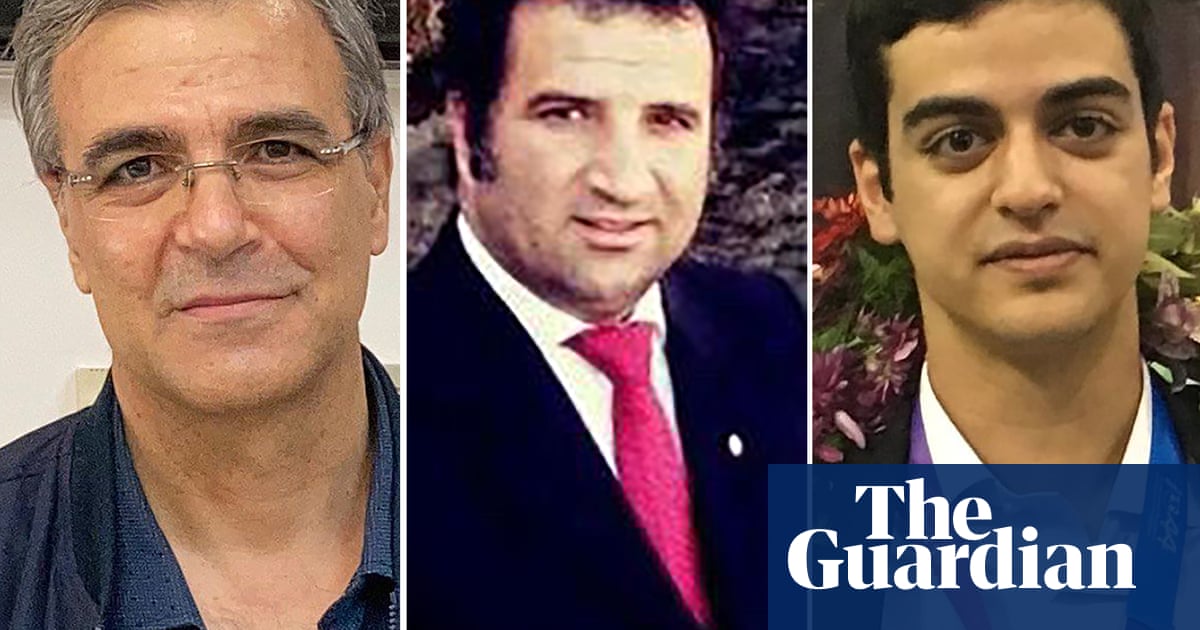
Dressed in his trademark sunglasses and a skintight black T-shirt, Andrew Tate strode into a Las Vegas arena like a returning king. He was there to watch Power Slap, a UFC offshoot where people slap each other in the face with such force that doctors say it could lead to brain damage and death.
Days earlier, Tate and his brother Tristan had been in Romania, their assets seized, awaiting trial on human trafficking charges. But following reported conversations between Romanian officials and the Trump administration, the Romanian government lifted a travel ban on the brothers. Now, as a heavily male crowd watched men slap one another so hard they collapsed, the UFC president, Dana White, warmly embraced the Tates. White, a Meta board member who was once caught on camera slapping his own wife, smiled at the Tates, looked them in the eyes, and told them: “Welcome to the States, boys.”
The next day, the Tates were back for a mixed martial arts fight night. This time, they were joined in the crowd by the FBI director, Kash Patel, and the convicted domestic abuser Mel Gibson.
It was a show of manpower, in every sense of the word. And it’s the kind of head-spinning display that has become a fixture of US politics.
Eight years ago, the words “#MeToo” was thumbed out more than 19m times on Twitter. Pundits feared that a single, unproven allegation could vaporize a man’s career. Now, the Trump administration seems to treat such allegations as a job requirement.
Two members of Trump’s cabinet stand accused of sexual assault, while another allegedly enabled the sexual abuse of children. Elon Musk, whose “department of government efficiency” is now shredding federal agencies, has been said to treat women like sex objects “to be evaluated on their bra size”. And, of course, there’s Trump himself: a man who has gloried in “grabbing ‘em by the pussy”, been found liable for the sexual abuse of one woman and faced accusations of sexual misconduct from dozens more. (All of these people deny wrongdoing, except White, who has admitted to slapping his wife.)
Meanwhile, famous women who say they were hurt are torn apart on the internet. Even Twitter is gone, cannibalized by Musk into X.
How did this happen? How could the United States, so recently the beating heart of a global movement to stop sexual violence, go so thoroughly – and brutishly – backwards?
Over years of interviewing sex and sexual violence researchers, educators, activists, pollsters and scores of ordinary Americans under 30, I have heard all kinds of thoughts and theories about sex and gender relations in the post-#MeToo US. Overall, people agreed, there is far more cultural awareness of sexual misconduct. Dozens of states have moved to protect people from workplace harassment, while nearly 30 have loosened their statutes of limitation around allegations of sex abuse, allowing people to pursue lawsuits that would have once been off-limits.
These are not small victories, but they are limited ones. Many of the #MeToo movement’s demands were never cemented into policy.
But those demands, and the cultural strides that accompanied them, have proved enough to spark a revenge campaign that is not only setting fire to hard-won rights for women, LGBTQ+ folks and people of color but also sending young men careening to the right. These men are finding a home in the manosphere, that burgeoning online realm that is at best uninterested in women and at worst interested in violating them. The sweeping nature of the backlash to #MeToo – playing out in our federal government, on our screens, in our communities – can feel so all-encompassing as to be overwhelming.
Did it have to be this way? As Americans struggle to respond to the whiplash, the #MeToo movement’s legacy reveals some much needed lessons about how progressives and feminists may move forward in a deeply uncertain time. For starters: talk about class, and talk to men. Indeed, these may be the same lesson.

‘The backlash is out in the open’
The activist Tarana Burke started the Me Too movement in 2006, but #MeToo did not explode into the public consciousness until October 2017, when the New York Times broke the news of workplace sexual harassment allegations against Harvey Weinstein and the actor Alyssa Milano urged her followers to tweet “me too” if they had endured sexual misconduct. What followed was nothing short of a worldwide reckoning: hundreds of high-profile men lost their jobs and untold numbers of people grasped for the first time that they, too, had survived sexual violence.
Some reprisal to #MeToo’s progress might be expected, given that feminist organizing has a history of unleashing anti-women sentiments, as the journalist Susan Faludi chronicled in her seminal 1991 book Backlash. After first-wave feminists launched the fight for women’s suffrage in the mid-1800s, states rushed to curb access to divorce, birth control and abortion. After the second-wave feminists of the 1960s and 70s fought to improve access to the very same resources, as well as better workplace conditions, Ronald Reagan’s administration pushed women out of government, shut down initiatives for domestic violence survivors and gutted the only federal program dedicated to expanding equal education for girls.
Yet the 1980s backlash, in Faludi’s view, now looks “tame in comparison” to today’s.
“In the 80s, the media and popular culture framed the backlash message as one of concern for women: Feminism was making these poor liberated ladies unhappy, unwed, barren and bonkers,” Faludi wrote in an email. “If you want to be Pollyanna about it, I guess you could say at least now the backlash is out in the open – the wolf’s no longer wearing sheep’s clothing.”
In the weeks since taking office, Trump has launched McCarthyist campaigns to stamp out diversity, equity and inclusion initiatives and “gender ideology”, erasing evidence of contributions to history by women, people of color and LGBTQ+ folks. He has eviscerated programs that help these groups succeed in public life, from the Equal Employment Opportunity Commission and National Labor Relations Board to civil rights offices to the nation’s oldest family planning program. His administration’s attacks on scientific research have hacked away at efforts to improve maternal mortality, intimate partner violence, access to contraception and sexual assault. At one major research agency, projects’ inclusion of the words “women”, “female” and “gender” have been enough to trigger intense scrutiny for potentially violating Trump’s executive orders.
But the backlash to #MeToo is not only unfolding in government corridors. It is also attempting to ruin people who live far from the halls of power.
In 2021, Bay Higginbotham published a blog post about a relationship with their older boss that, they said, involved sexual abuse. The Dallas-area hairstylist felt like their career would be at stake if they turned their boss down; sometimes, the sex became so violent that Higginbotham would be in “physically unbearable pain”, cry or throw up, court documents allege.
#MeToo, Higginbotham told me in an interview years later, helped them come forward. “I don’t think it would have been possible for me to even think that I could do that, without these hundreds of thousands of other people saying: ‘Yeah, I’ve experienced something too,’” Higginbotham said.
Then, in April 2022, Higginbotham’s former boss sued them for defamation. In a complaint that repeatedly misgendered Higginbotham, the boss denied all wrongdoing and accused Higginbotham of waging an inexplicable “hate campaign”.
“You can’t just lie about people and ruin their life’s as the woke mob with a fake sob story and no proof will slander your name,” read one erratically punctuated post from a Facebook account under the boss’s name, which was documented in court records. “Million dollar court cases is the last resort to slap some sense into these lying females who often suffer mental illness, regret, shame, infidelity, hurt feelings, didn’t get famous, didn’t become successful, embarrassed or just want to be part of drama at other peoples expense.”
By silencing people who speak out about sexual misconduct, defamation lawsuits have quietly become a key feature of the #MeToo backlash. Out of the 400-plus cases supported by the Time’s Up Legal Defense Fund, a post-#MeToo organization that helps people who have experienced sexual harassment at work, nearly a fifth were in defense of someone who’d been sued for defamation after alleging sexual misconduct.
In an interview, Higginbotham frequently and visibly trembled as they spoke about the lawsuit. “It impacted everything – work, school, my relationships,” they said. “I still feel nervous and scared to talk about my own opinions and thoughts with this. I have had those used against me a lot.”
Trump has filed a defamation suit of his own: against E Jean Carroll, who had accused him of raping her and sued him for defamation when he denied it. A judge tossed Trump’s countersuit, while a jury found that Trump was liable for sexually abusing Carroll (but stopped short of finding him liable for rape). “You’ve got to deny, deny, deny and push back on these women,” Trump reportedly once told a friend. “If you admit to anything and any culpability, then you’re dead.”

Boys being boys
While the internet once ignited the #MeToo movement, it has also helped foment the backlash – in the form of the manosphere.
Once a word for the websites, blogs and forums that played home to incels, pick-up artists and other “male supremacists”, the manosphere is now sometimes believed to encompass less extremist personalities like Joe Rogan and the Nelk boys. Its denizens share a bunker mentality: Men aren’t welcome in mainstream media anymore – but here, boys can be boys. By 2024, 65% of men between the ages of 18 and 29 agreed with the statement that “guys can have their reputations destroyed just for speaking their mind”, according to polling by YouGov and the Young Men Research Initiative, which examines young men’s rightward drift. It’s a belief with profound political consequences: 85% of young men who voted for Trump agree with that statement.
As the manosphere’s prominence began to grow, more people started reporting online harassment that includes stalking, physical threats or sexual harassment. Nonconsensual image abuse, or “revenge porn”, has also skyrocketed: Between 2013 and 2023, sites that collect these intimate images grew from 40 to nearly 10,000, according to the scholar Danielle Citron.
“That proliferation of online spaces really boomed post-#MeToo,” said the researcher Katie Bogen. Their growth, she suspects, constitutes another aspect of backlash thinking: “‘Women want to talk about sexual violence in online spaces? Survivors want to come forward in online spaces? Let’s set up a retaliatory mechanism to keep these people in their place.’”
Musk’s X might be one of these spaces: content reported under its nonconsensual nudity policy, one pre-print paper found, is frequently left online.
#MeToo did not seem to lead men to even realize that they, too, had a stake in ending sexual violence. While women and LGBTQ+ people became more likely to report sexual violence to researchers, there was no corresponding rise in among cis, straight boys and men, one study found (even though one in three men have experienced “sexual violence involving physical contact”, according to the CDC). And in interviews with dozens of anti-sexual assault advocates, the researcher Shana Maier found that more than a quarter felt that #MeToo excluded men.
“One interesting thing that I saw very early in the #MeToo movement was the backlash against men who were joining in the hashtag thing and then people telling them, ‘this is not your moment,’” one advocate told Maier. “If a man was saying ‘me too’ people were like, ‘This is about women. Why are you trying to make this about you?’”

‘Let it go’
Although #MeToo raised cultural awareness around sexual misconduct and helped strengthen many laws, the movement’s successes were ultimately, tragically limited.
Reports of sexual violence among women and LGBTQ+ people have surged since #MeToo – but primarily, it seems, in academic research, where survivors may only be asked to check a box or confide only in researchers. Multiple studies have concluded that most survivors have not become more likely to disclose their experiences to friends, family or the police, or to seek help from victim services.
“I knew it was a possibility to file a police report, but I also knew that it wasn’t really done,” a 24-year-old woman from New Jersey told me in an interview conducted as research for a forthcoming book. She said that, at 18, she had been raped on prom night by her boyfriend. The couple frequented the local DIY music scene; she knew other girls in the scene who had also endured what she called “experiences with other, older losers”. None had gone to the police.
“I felt so much pressure just to let it go and let it not be a big deal,” she said. “By the time I came to my anger, I felt like it was too late.”
Nor are institutions necessarily taking sexual violence more seriously. The researcher Nicole Bedera spent 2018 and 2019 – the first full school year after #MeToo washed across social media – embedded at a university, studying its processes for handling reports of sexual harassment and assault. “During my entire year in the field, I never heard a school administrator talk about #MeToo,” she said. “Unless it was to disparage it and to say that women today – their expectations of men were too high, that they were blaming men for things that in the past were fine.”
An investigation of dozens of public universities found that, even when schools determined that a student should be held responsible for committing sexual misconduct, most were allowed to continue their education without disruption. In contrast, a survey of people who reported sexual violence to school officials found that almost 40% took a leave of absence, transferred or dropped out entirely.
“Sexual violence is one of the best predictors of whether or not a woman will complete her degree. The unwillingness to get it under control creates a lot of lifelong gender disparities across our society,” said Bedera, who turned her research into a book. “It is a resegregation effort to say: ‘Oh, we know that this thing leads women to exit public society, and if we keep that in place, we’re going to have a workforce and education spaces that are more male-centered.’”
In an ominous sign for the future, educational efforts to address sexual violence did not take hold after #MeToo. Although state lawmakers introduced 109 bills to advance comprehensive sex ed – which includes training about consent – in the first half of 2018, only six passed. Another six advocated for sex ed that preached abstinence. Such sex ed only teaches people to say “no” to sex; it does not help them when someone says “no” to sex and their partner doesn’t respect it. By 2024, state-level bills that propose teaching about consent had virtually vanished (a development that also speaks to the Christian religious right’s growing power).
Many of the young adults I interviewed had next to no memories of #MeToo. “I remember seeing ‘#MeToo’ everywhere,” a 19-year-old woman from Hawaii recalled. “But I honestly don’t even really know what it is.”
She did, however, know what it was like to grow up in a country that treated sexual violence as normal, even expected. “Almost all of my friends in Hawaii were raped growing up,” she said. “Looking back, I definitely should have said something. But at the time, my friends were begging me not to say anything to anyone.”

It’s the economy, stupid
In the 1980s, the disappearance of manufacturing jobs and the demonization of welfare led men to scapegoat women for their economic frustrations. Men have always been more conservative than women, but poll after poll in those years found that single young men increasingly “feared and reviled feminism”, Faludi wrote. One pollster told her: “It’s these downscale men, the ones who can’t earn as much as their fathers, who we find are the most threatened by the women’s movement.”
In this moment of political peril and outright hostility towards feminism, the #MeToo movement’s triumphs and losses offer organizers a lesson: focus on class and men.
Men’s economic anxieties remain inextricably tied to their feelings about masculinity, feminism and sexual violence – and women remain easy targets. A 2023 not-yet-published study authored by Annabelle Hutchinson, an assistant professor of government at New York’s Hamilton College, found that when white men are out of work, they become less likely to vote for women. They also become more likely to support statements like “women who complain about discrimination and harassment cause more problems than they solve.” (White women, Black men and Latino men were not found to react this way.)
It would not have been a stretch to channel #MeToo’s momentum into a workers’ movement; after all, it broke out in response to the allegations of workplace sexual harassment against Weinstein. And some of #MeToo’s most prominent backers did attempt to incorporate economic demands into the movement. In January 2018, Hollywood actors gathered together to announce a bifurcated new initiative to support working-class people fight against sexual harassment: the Time’s Up Legal Defense Fund and a separate organization known only as Time’s Up. But while the National Women’s Law Center still runs the Defense Fund, the Time’s Up organization – dogged by years of accusations of incompetent management and lack of focus – finally collapsed after news broke that some of its (wealthy) leaders had tried to help the former New York governor Andrew Cuomo fend off sexual harassment allegations. Their allegiance to the upper class seemed to trump any notion of sisterhood.
What if #MeToo’s push to oust high-profile men had been accompanied by more organizing for better conditions for workers? We’ll never know, but perhaps it could have created some cross-gender solidarity and held off one of the most powerful precursors of backlash. It could have even done something more powerful: lead men to recognize that feminism could benefit them, too.

The sex police
In interviews with young men, Daniel Cox, director of the Survey Center on American Life at the right-leaning American Enterprise Institute, found that #MeToo had left men defensive. They worried they would be unjustly cancelled.
“There’s a sense among a lot of young men that you need to be a little bit more on your guard and careful about what you say and what you do,” Cox said. “Because it can land you in a lot of trouble.”
That attitude can understandably frustrate and exhaust feminists. Not only are men still unlikely to be held accountable for sexual misconduct, but before #MeToo, the bar for consent was so low that ants could backflip over it. A 1990s survey of thousands of Americans’ sex lives found that only 3% of men said they had sexually forced a woman, but about 22% of women said they had been sexually forced by a man. Half of these women had been forced by a man they were in love with. “Most men who forced sex did not recognize how coercive the women thought their behavior was,” researchers concluded.
If the modest changes wrought by #MeToo are so destabilizing for men, then how are we ever supposed to eradicate sexual violence? (Tellingly, young women don’t seem to share their male peers’ objections to #MeToo, as experts believe the movement is one of the main reasons why they are more progressive and politically engaged than ever.)
At the same time, dismissing men’s opinion of #MeToo can lead to political ruin. Too many young men now see the Democrats as the sex police: punitive, small-minded and, frankly, not fun. Unfair or not, perceptions like these are the death knell of organizing.
“The Democrats are focusing so much on what you can’t do, what’s inappropriate, what’s harmful,” Cox said. “People don’t want to feel that, at any moment, someone can look at what they’re saying or doing and publicly shame them or get them in trouble with an employer.”
Shauna Daly, executive director of the Young Men Research Project, believes that Democrats can still right the ship. They need to start off, she said, by acknowledging that young men are really struggling: in addition to their stagnating wages, they are today less likely than women to go to college and more likely to die of suicide.
“The right has been able to weaponize that disorientation and that frustration and say that these changes and these lowered fortunes are because of women and immigrants,” Daly said. “There’s a persuasion that has to happen from the left that says: ‘It is because of systems that are rigged against you, but let’s go fix those systems. Let’s make sure that men do have better options. Let’s address the concentration of wealth that is sending money to billionaires while you’re not able to get a better job.’”

A sliver of hope
Many of the men who were seemingly felled by #MeToo have returned to the public eye with minimal consequences. For example, although a state investigation found that Cuomo had sexually harassed 11 women and created a hostile work environment, he is now running for mayor of New York – and polling far ahead of his competitors.
Yet the publicist Joanna Klonsky, at least, has not given up hope for #MeToo’s legacy. “I can point to so many survivors, who I’ve worked with, whose abusers or assaulters are no longer in a position of power over them or over other women,” said Klonsky, who helps sexual assault survivors get in touch with journalists. “For that reason, it’s impossible for me to say there’s been no positive effect from this.”
The defamation case against Higginbotham finally went to trial in 2024. Higginbotham testified; so did several other witnesses. And in the end, the jury found that Higginbotham did not owe their ex-boss any money.
It is no small task to convince 12 strangers, in a conservative Texas county, to back a non-binary person telling a story of sexual violence, Higginbotham’s lawyer, Justin Wood, pointed out.
“I think average people – when talking about it and dealing with it and listening to others – can come to the right conclusion,” Wood said. “I’m definitely not going to say that everyone will always win, but I wouldn’t say that it’s hopeless.”
The ferocity of the #MeToo backlash is perhaps the strongest evidence that the movement was getting somewhere, that its rise and fall gave people a vocabulary to speak out about sexual misconduct and led people to take it more seriously. The cost of coming forward can still be immense. The backlash may still metastatize. But there are also still avenues for fighting back.
“It’s why I spoke up in the first place,” Higginbotham said. “So that other people can hear this and feel like they can share their truth as well.”

 2 months ago
57
2 months ago
57


